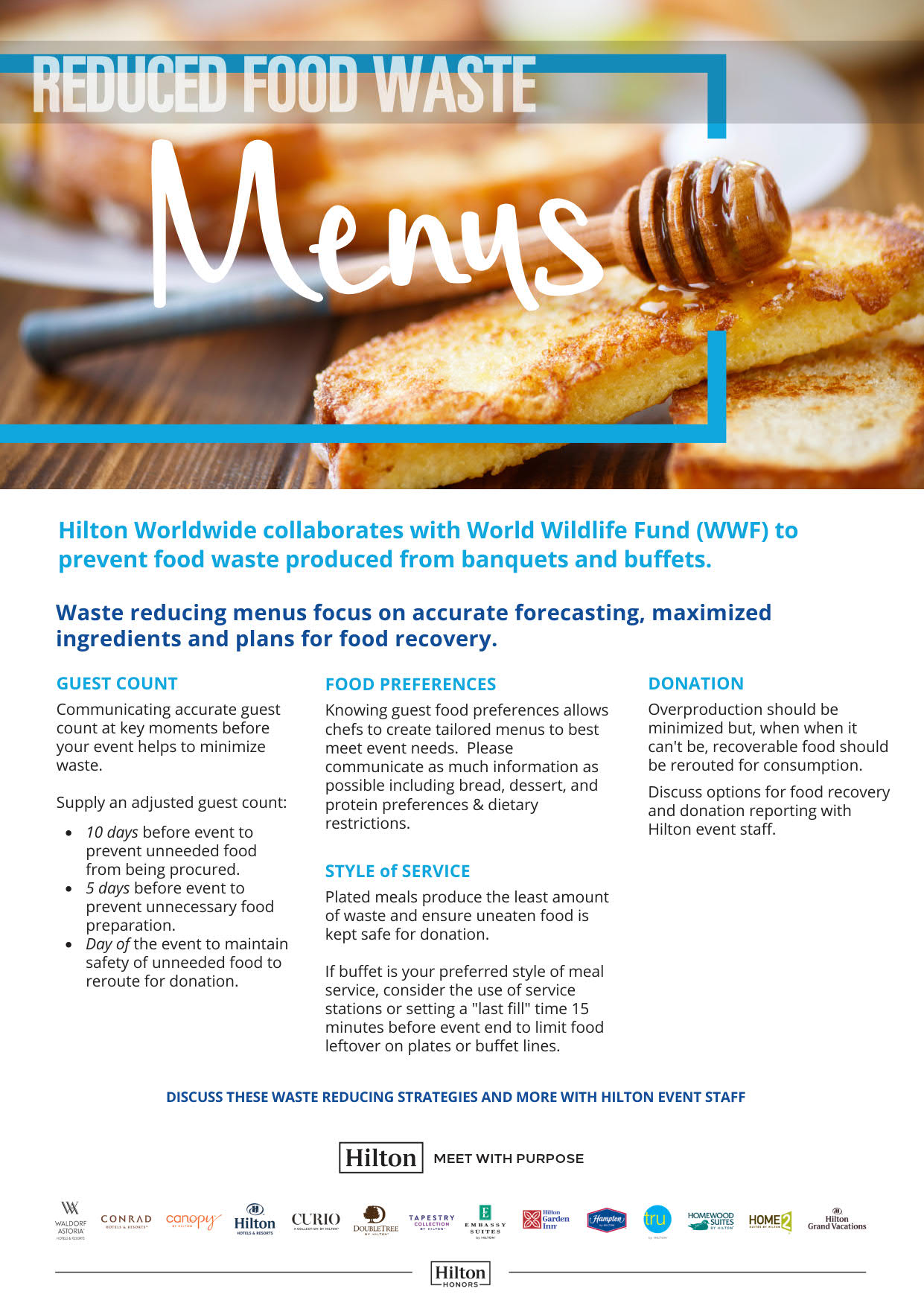Washington Hilton
Partnership, Leadership and Successful Adoption
1919 Connecticut Ave NW, Washington, DC 20009
Meeting space: 110,000 sq. ft. | Rooms: 1,000+
The Washington Hilton, under the leadership of their Food and Beverage Assistant and with support from the Director of Food and Beverage, implemented a separation and measurement system accompanied by an employee engagement exercise focused on preventing food waste in their staff cafeteria. The following are highlights from their participation in this 4-month demonstration project.
Successes
Located in the heart of Washington, DC, the Washington Hilton hosts many high-profile events, including the White House Correspondents’ Dinner. The hotel’s proximity to World Wildlife Fund Headquarters allowed the food waste team to regularly visit the property to observe and assist in project implementation. The presence of the WWF team catalyzed the successful adoption of pre-service and post-service food waste separation in the staff cafeteria. Additionally, positive reinforcement from the pilot lead, additional staff training, and regular bin observations helped keep the food waste separation running smoothly. Staff happily adopted separation practices and shared stories with pilot leadership, demonstrating a clear understanding of the negative impacts of wasted food.
In the staff cafeteria, signs created by the pilot lead helped staff sort their waste accurately. TV monitors in the staff cafeteria played Lobster Ink training videos, exposing staff to the training during their mealtimes and breaks. Many culinary and stewarding staff members successfully completed the Lobster Ink training and associated exercises.
Donation
Washington Hilton donates excess food and meals to the Ronald McDonald House and DC Central Kitchen. Approximately 6-8% of prepared food is donated, and all data is tracked through LightStay, Hilton’s proprietary sustainability reporting software.
Challenges
While tracking was successfully adopted in the staff cafeteria and among employees, other food service functions are still in the adoption phase of the process.
Diversion
Most food waste on property is processed in the ORCA digester, which has recently been upgraded with the ability to track the amount of waste being processed. Approximately 3,000 pounds of food waste is digested through the ORCA every week, reducing dumpster pulls by one pull per week.


Next Steps
The culinary team collaborated with WWF to develop a set of reduced food waste menus that emphasize low-waste ingredients and cross/complete utilization of all items. Event sales staff have been trained to sell these menus and are finding that clients and employees alike are engaged around the waste reducing menus. The sales team are awaiting customer selection to test the efficacy of the menus.